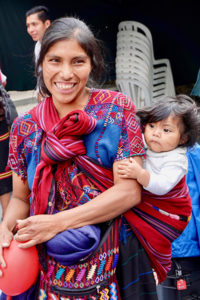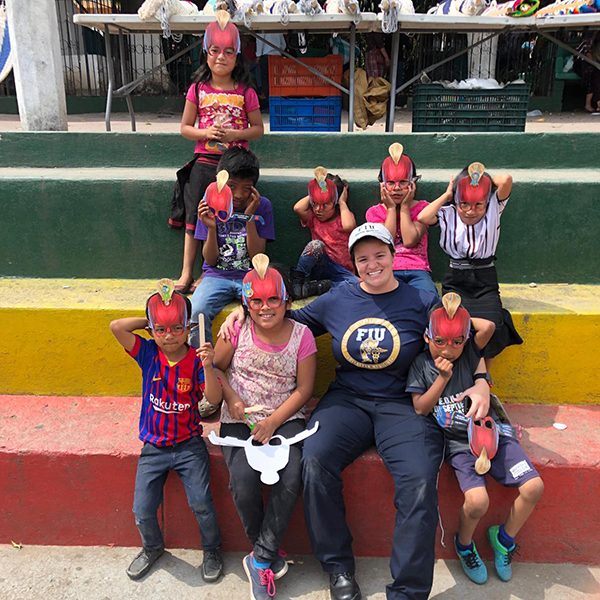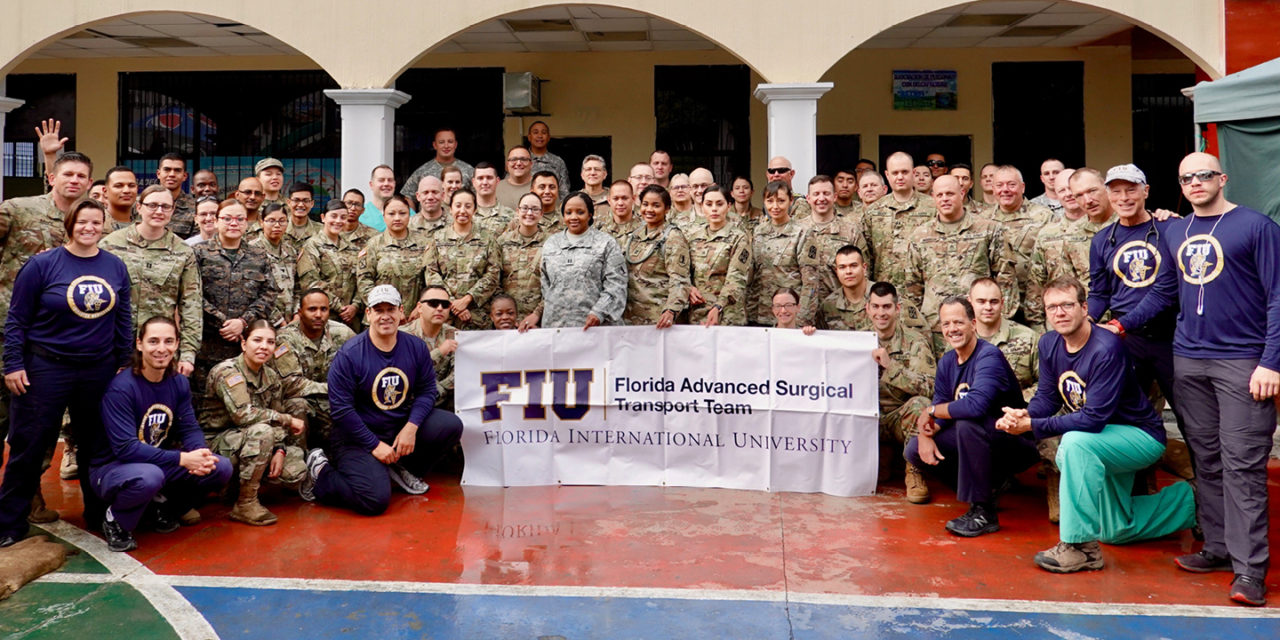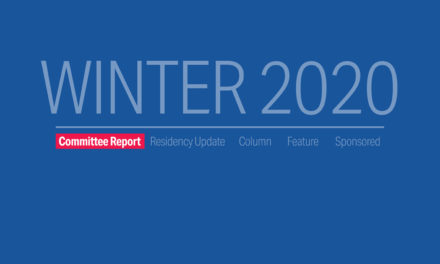Fall 2019: Beyond the Horizon
In May, members of the FIU-FAST team once again participated in a medical mission with the U.S. Military. We worked with the US Army and Marines and Guatemalan medical personnel, seeing patients in tents set up in the town-square of Guatemala’s third-largest city, Huehuetenango. About six hours northwest of the capital, Huehuetenango is perched 6,200 feet above sea level. Hot and sunny during the days, the temperature dropped to the 70s in the evening, providing less heat stress than prior missions.
Our team of eight was comprised of five emergency physicians, one pediatrician and two with disaster medicine expertise in addition to nursing and paramedic backgrounds. In addition to personal gear, we brought lifesaving medications and equipment in well-organized cases created to address any unexpected emergency, from lacerations to cardiac arrest. Routine medications for patient care were supplied by the military.
 Every day, about 750 patients were triaged to one of several areas established for the mission, including general medicine, dentistry and optometry. In total, almost 4,000 patients were evaluated during the mission. While most patients spoke Spanish, a fair number spoke only Mam. An indigenous dialect, Mam is spoken by about half a million people in Guatemala, mainly in Huehuetenango and surrounding areas. Spanish-Mam translators were available for these patients. Poor in income but not in dignity, patients came dressed in their finest traje (native garb or costume) (pictured right). For women, this often consists of a huipil (loose-fitting tunic), faja (traditional woven belt or sash) and corte (traditional skirt) all specific to their group. The outfit is completed with a tzut (square-woven cloth worn on the head). Traje have been worn by indigenous Mesoamerican women for hundreds of years. The current version is often embroidered with flowers and butterflies).
Every day, about 750 patients were triaged to one of several areas established for the mission, including general medicine, dentistry and optometry. In total, almost 4,000 patients were evaluated during the mission. While most patients spoke Spanish, a fair number spoke only Mam. An indigenous dialect, Mam is spoken by about half a million people in Guatemala, mainly in Huehuetenango and surrounding areas. Spanish-Mam translators were available for these patients. Poor in income but not in dignity, patients came dressed in their finest traje (native garb or costume) (pictured right). For women, this often consists of a huipil (loose-fitting tunic), faja (traditional woven belt or sash) and corte (traditional skirt) all specific to their group. The outfit is completed with a tzut (square-woven cloth worn on the head). Traje have been worn by indigenous Mesoamerican women for hundreds of years. The current version is often embroidered with flowers and butterflies).
Despite waiting in long lines baking in the sun, patients came in smiling, grateful for the little bit of kindness we could share with them. Adults presented with arthralgias, dyspepsia and mostly minor complaints. Malnutrition and stunted growth were commonly seen in children, all of whom were treated for parasites. Even a few months of being parasite-free is beneficial for their growth and the overall population. While most had routine medical problems, we had two dramatic cases in which the FIU-FAST team really made a difference. The first involved a young child that presented in profound shock with peritonitis, due to a ruptured appendix. Our team resuscitated and stabilized the child with intravenous fluids and antibiotics we brought from Miami for such an exigency. She was transported to the municipal hospital where she underwent successful surgery. In the second case, an infant presented with a probable ventricular septal defect complicated by heart failure and failure to thrive. This child was referred to Guatemala City for definitive care.
From advanced cancer to uncomplicated well-child checkups, we met and took care of an amazing group of people. We would like to thank the people of Guatemala for their kindness and appreciation; the US and Guatemalan military and medical staff, fantastic partners dedicated to improving lives; and those at FIU and especially our families that enabled us to participate in this mission. ■



 This article originally appeared in EMpulse Fall 2019. View the
This article originally appeared in EMpulse Fall 2019. View the 


